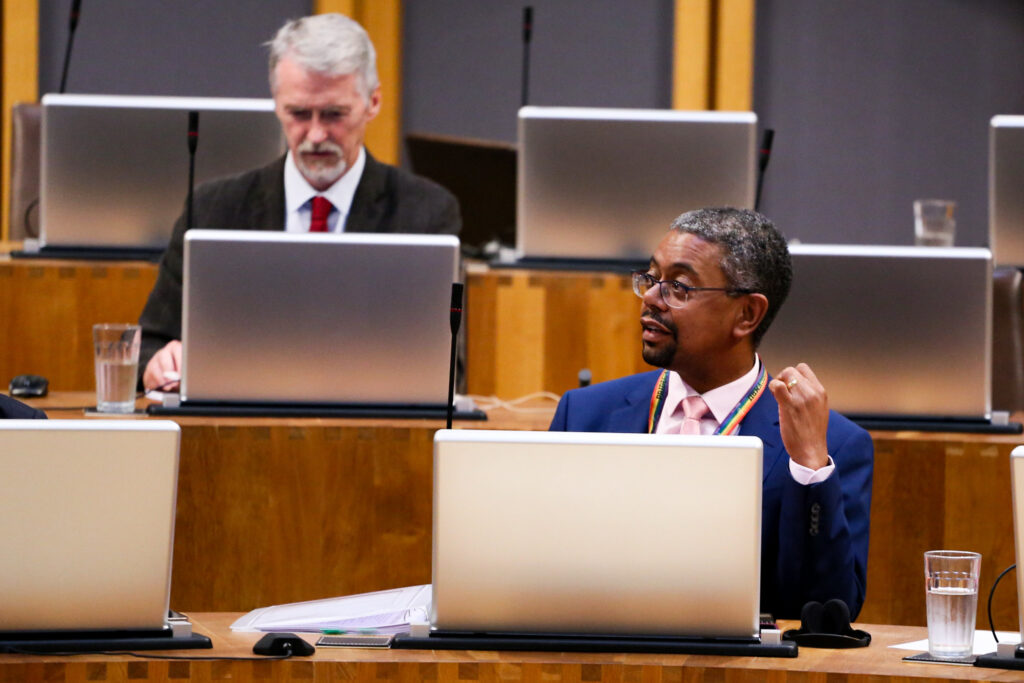Geraint Talfan Davies welcomes a landmark BBC’s decision whiuch augurs well for Wales’s creative industries.
This week’s announcement confirming that the BBC will build its ‘drama village’ in Cardiff Bay, is surely a landmark decision that deserved rather more publicity than it got. It is a major victory for BBC Wales Controller Menna Richards and her team that was never a foregone conclusion.
An organisation the size of the BBC has a thousand ways of kicking large projects into the long grass. The BBC also has more than its share of bright streetfighters well able to defend the status quo and scupper change or reform. The winning of the drama village project for Wales is not only a vindication of BBC Wales’s drama successes over the last decade, but also an indication that the BBC, at the very top, has got the devolution message. It is another instalment in a significant devolution dividend, and a challenge to some other public service broadcasters, notably Channel 4.
It underscores the similar message conveyed by the BBC’s new headquarters building in Glasgow and its commitment to a Media City in Manchester. The Manchester Media City concept has been the template that the Welsh Government has seized on to expand the scope of the BBC project and to justify its own investment, although Cardiff may find it tougher than Manchester to realise such potential. We won’t know unless we try.
The drama village will bring together on one site production facilities for Dr. Who and its multifarious offshoots, as well as for Casualty and Pobl y Cwm.
Bristol will, of course, feel aggrieved that production of Casualty is being moved to Cardiff, but the truth of the matter is that providing a fairer distribution of BBC production around the UK always ran into the problem that there was too much production concentrated in England. The BBC’s network production centres in Bristol, Birmingham and Manchester always constituted one too many. The key production centres will now be London, Manchester, Glasgow and Cardiff – with Northern Ireland and Bristol having a continuing but lesser role. Birmingham may be a bigger loser.
With such substantial physical investment in the four prime locations, the BBC will now have to ensure that they work, and that they sustain volume production. In a sense, therefore, the Cardiff Bay drama village locks in the BBC’s commitment to Wales more firmly than any number of strategy statements. At present BBC Wales network drama production is well ahead of Scotland. In the 1990s, Scotland was well ahead of Wales. The real test of these arrangements is how London will cope when Scotland, Wales and Manchester are all t creatively on-song at the same time.
Settling the major decision about infrastructure also clears the ground to allow the BBC to tackle the next major issue of cultural representation, always an even thornier issue than the decentralisation of production.
Rightly or wrongly – in my view wrongly – the power of UK and international markets tends to work against material that is geographically rooted, and that has been a difficulty for Wales given its place in the pecking order of British culture. But even in England it is an issue as well. For instance, television adaptations of literary classics might lead you to believe that Jane Austen and Charles Dickens are the alpha and omega of English literature, with regular obligatory nods to the ‘bard’.
It is also arguable that BBC television drama has been less northern than ITV – the BBC’s Eastenders versus ITV’s Coronation Street and Emmerdale. There is some evidence that Austen, in particular – with its distinctly southern character – plays less well in Scotland and the north of England. Moreover, British television – the BBC in particular – has been far less attentive to 20th Century literature. And what of Welsh and Scottish literature on television? There is sill a lot to play for.
One other dimension of the drama village project is worthy of note. It is that the development is to take place in Cardiff Bay, and to be carried out by the development company, Igloo Regeneration, which has a reputation as one of the higher quality developers in the UK, with a good track record on sustainability.
The combination of a major centre for the creative industries, and possible other spaces for life sciences, together with more imaginative housing than in the rest of Cardiff Bay, may provide a more genuine living community than in the rest of the Bay area, where hitherto developers have been allowed to build high with little thought for animating the area at ground level.




